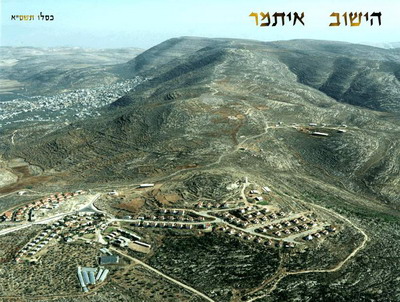1. 'Israel to ask for military facility
in Cyprus'
By YAAKOV KATZ
02/07/2012 14:19
http://www.jpost.com/Defense/
Article.aspx'id=256844
PM could make request during Cyprus visit; Cypriot media says talks at
"exploratory stage" regarding use of Paphos base.
By REUTERS/Andreas Manolis
Extracts:
Israel will ask Cyprus to station Israel Air Force fighter jets at a
military facility on the island, Cyprus media reported Tuesday.
According to the reports, Israel will make the request during Prime Minister
Binyamin Netanyahu's visit to Cyprus later this month.
Related:
It is unclear if the request will be to station a permanent presence on the
island or to establish a base that can provide logistical support for the IAF
during operations in the region.
It is possible that Israel is seeking to establish a base in Cyprus to be able
to more effectively protect the growing number of gas fields it is discovering
in the Mediterranean Sea.
According to the report in the Famagusta Gazette, the talks are currently at an
'exploratory stage' regarding the possibility of using the Andrea Paendreou
airbase in Paphos, in southwestern Cyprus. The base reportedly used to host
Greek F-16s.
Neither the Cypriot Embassy in Tel Aviv nor the Prime Minister's Office would
confirm the reports.
Last month, Defense Minister Ehud Barak and his Cypriot counterpart Demetris
Eliades signed two agreements aimed at bolstering defense cooperation between
the countries. The agreements were signed during Eliades's visit to Tel Aviv.
The possibility of establishing the base in Cyprus, reportedly came up during
their discussions.
Israeli-Cypriot ties have improved significantly over the last three years. The
Cypriot Air Force sent fire extinguishing planes to Israel to help put out the
Carmel Forest fire last year, and in 2009 Cyprus stopped a cargo ship suspected
of carrying Iranian arms.
Herb Keinon contributed to this report.
2. IDF Intel Chief: 200,000 Missiles
Aimed at Israel
http://www.israelnationalnews.com/News/News.aspx/152362
There are some 200,000 missiles and rockets aimed at Israel, a top IDF official
said Thursday - and no part of the country is "safe" anymore
By David Lev
First Publish: 2/2/2012, 10:53 AM
IDF Intelligence head Aviv Kochavi gave a chilling presentation Thursday morning
at the Herzliya Conference on Israeli policy, telling listeners that Israel's
enemies had 200,000 rockets and missiles pointed at the country, and could reach
all parts of Israel ' even the ostensibly safe 'center' of Tel Aviv and its
suburbs.
Most of the missiles have a range of about 40 kilometers ' the range of Qassam
and most Katyusha rockets ' but thousands of missiles have ranges of hundreds of
kilometers, making every location in Israel within their reach. Not only that '
but the missiles are more lethal now than ever before. 'The warheads on these
missiles contain hundreds of kilograms of explosives, not dozens, as in the
past. And their firing precision and ability to hit specific targets is also
greater,' Kochavi said. The rockets are largely located in Lebanon and Syria,
with a smaller amount in Gaza ' and in Iran, as well, which has thousands of
missiles that could reach Israel. 'Every tenth house in Lebanon is now a weapons
depot,' Kochavi said.
Besides conventional weapons, Israel is also facing a nuclear threat. According
to Kochavi, Israel has lost the battle to prevent Iran from developing nuclear
weapons; Tehran already has enough uranium for four atomic bombs, with over 100
kilos enriched to a level of 20% - more than enough for the one bomb Iranian
President Mahmoud Ahmadinejad has said he would need to 'rid the world of the
Zionist entity.'
Whether or not Iran actually builds these bombs is not a question of technical
capability, Kochavi said, but a question of political will. The ability to build
the bombs is there, and whether or not they will actually be assembled is a
decision that top Iranian officials, especially Supreme Leader Ali Khameini, has
yet to make. 'From the moment the order is given, it will take about a year to
assemble the bombs,' Kochavi said. 'Developing them into warheads will take a
little longer.'
He added that the sanctions against Iran have not yet persuaded Tehran to change
its nuclear development policy one way or the other, but that could change if
the government feels it is losing control. Still, sanctions are preferable to
the other alternatives, at least at this time, he said. 'Only concerted
international effort can persuade Tehran to halt their pursuit of the project,'
he added.
Despite the fact that so far it appears that Islamists have been the big winners
of the 'Arab Spring,' it is not they that led the revolutions in Arab world, but
the desperation of youths and young adults who face a future of unemployment and
hopelessness. If the new regimes do not work quickly to raise hope for the
masses, he said, the current unrest could continue for many years.
However, one aspect of the weakening of traditional Arab dictatorships in the
region has negatively affected Israel; with less authority has come more porous
borders, and Iran has been taking advantage of this fact to move more weapons
into neighboring Arab countries. As a result, more terror attacks with Iran's
backing can be expected. Kochavi said that the attack last August on the
southern Negev was orchestrated by Iran, and thanks to the large amount of
weapons in the region ' with the Middle East now 'the world's largest weapons
warehouse' - similar attacks in the future are all but inevitable.
3. Israel National Library uploads trove
of Newton's theological tracts
http://www.haaretz.com/print-
edition/news/israel-national-
library-uploads-trove-of-newton-s-
theological-tracts-1.411811
Unlike Newton's scientific texts, owned by the University of Cambridge in
England, his theological writings made their way to the National Library of
Israel.
by Nir Hasson
Extracts:
The end of the world will be coming in just another 48 years, in 2060, according
to the father of modern physics, Isaac Newton, who died in 1727. His
calculations were not based on mathematical principles or the laws of physics,
but instead on the Christian Bible and the Book of Daniel from the Hebrew Bible.
Anyone interested in delving further into Newton's calculations will now be able
to find it on the website of the National Library of Israel, which owns Newton's
manuscripts on theological topics. The library has put digital copies of all of
Newton's theological writing on the Internet, with the support of the David and
Fela Shapell Family Foundation.
Contrary to his public image, most of Newton's work was not devoted to science
but rather to theology, mysticism and alchemy. Unlike Newton's scientific texts,
which are owned by the University of Cambridge in England, the 18th century
thinker's theological writings made their way to the National Library of Israel
in Jerusalem, and they have just recently been digitally copied and posted on
the Internet in cooperation with Cambridge University's Newton Project.
The Newton Project digitized and copied all of Newton's manuscripts, meaning
that it is now possible not only to access Newton's works but actually read what
he wrote in his own handwriting.
The story of how Newton's manuscripts became part of the collection of the
National Library of Israel involves a string of luck and coincidence. About 150
years after his death, descendants of the thinker transferred the collection of
his manuscripts to the University of Cambridge, where Newton had studied. The
university decided to retain only those manuscripts that related to his
scientific work, so his theological writings were returned to his descendants.
In 1936, the manuscripts were offered for sale by the Sotheby's auction house in
London. In an unfortunate circumstance for the auction house - but fortunately
for Israel's national library years later - Sotheby's London competitor,
Christie's, was holding an auction of Impressionist art that same day and the
art attracted a lot more public interest than Newton's manuscripts.
Apparently only two people showed up for the auction of Newton's writings, the
noted British economist John Maynard Keynes and the Jewish Orientalist and book
collector Abraham Shalom Yahuda, so the two divided the spoils. Keynes bought
Newton's alchemy manuscripts while Yahuda got Newton's theological writings.
After Yahuda's death in 1951, his collection of Newton's work was transferred to
the National Library of Israel.
"From our perspective, there is a contradiction between natural sciences and
rationalism and theology, mysticism and faith, but in his mind, as a product of
his time, part of the understanding of the laws of nature involved understanding
how the world worked," Milka Levy-Rubin, who curates the national library's
humanities collection, said of Newton. "The stage of history was a field of
research for him."
Newton's theological writings have importance beyond the intellectual
edification they provide, Levy-Rubin noted.
Newton belonged to a group of theologians who ultimately managed to change the
face of Christianity in general and its relationship with the Jews in
particular. Until then, the prevailing doctrine held that the degradation the
Jews had suffered over the centuries was proof of the validity of Christian
belief. The spirit of the Renaissance, however, prompted theologians to revisit
the scriptures, including the Hebrew scriptures.
In their rereading, they saw the Jews' place in history in a new light, viewing
the historic role of the Jews as one that had not ended. They foresaw a time
when the Jews would return to their ancient homeland, after which, in the view
of these Christian thinkers, they would accept Christianity ...
See Also:
The End of the World is Nigh - according to Newton
http://www.kton.demon.co.uk/newton.htm
|




